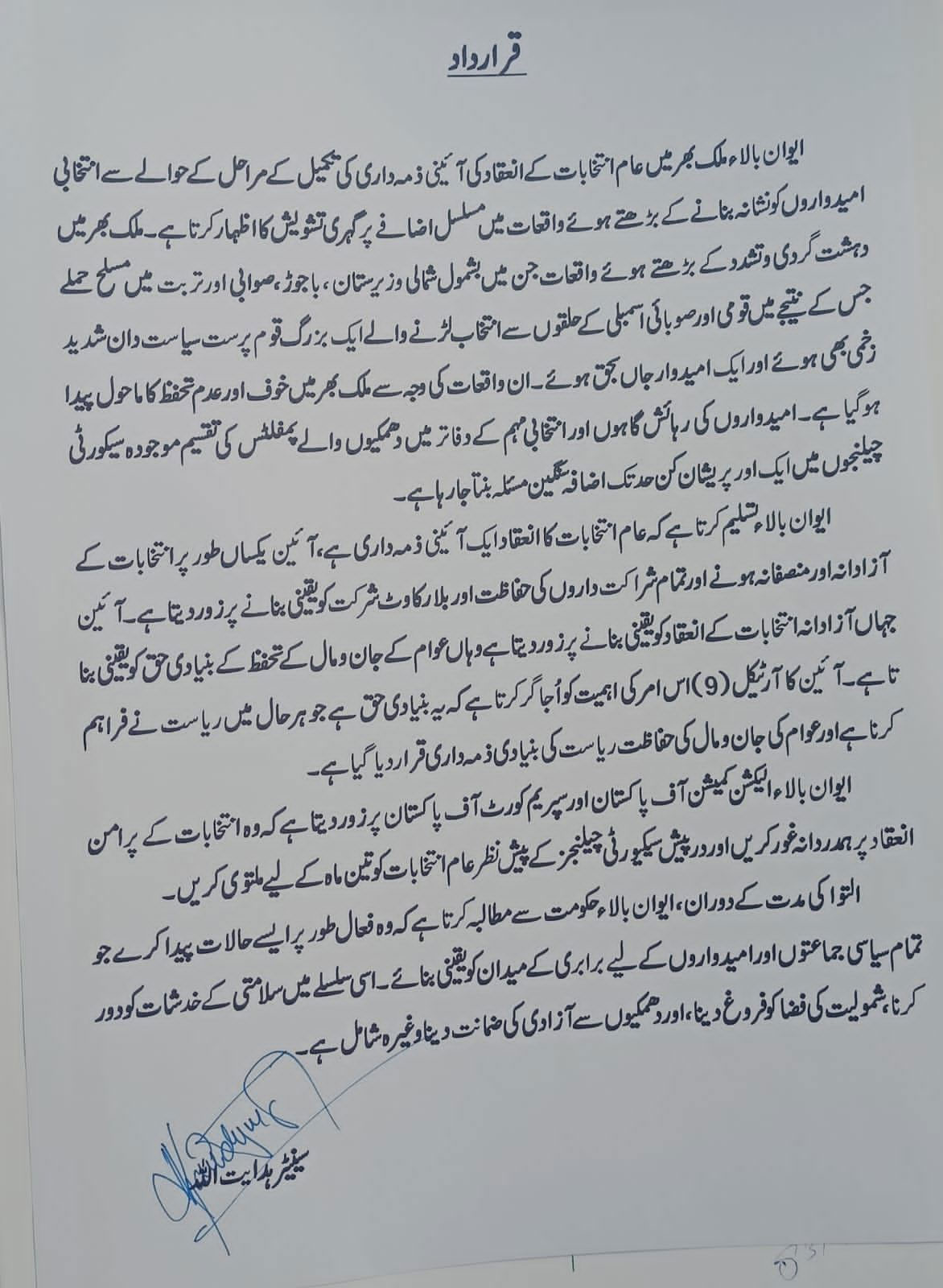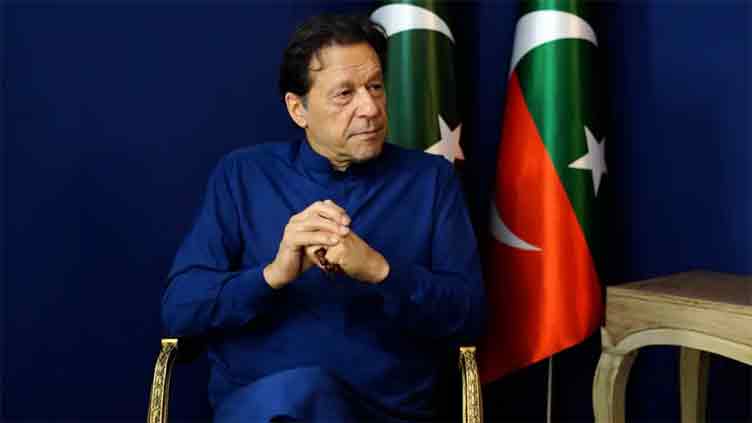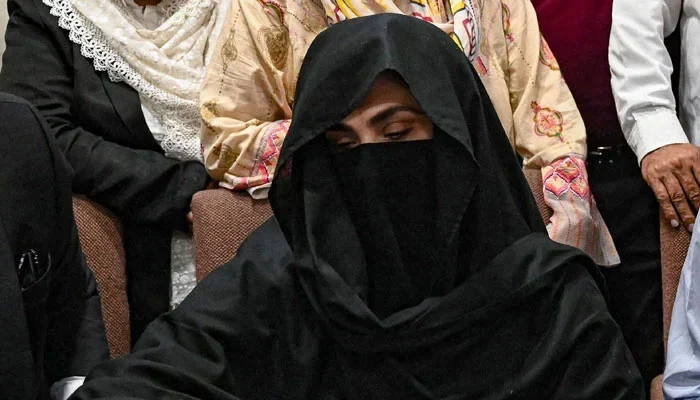Politics
Another resolution on delaying Feb 8 polls submitted to Senate

Latest News
PTI suggests resuming talks with government over judicial commission issue.
Latest News
PTI will declare February 8 to be “Black Day,” sparking protests across the country.
Latest News
In 13 cases involving the D-Chowk demonstration, Bushra Bibi granted temporary release until February 7.
-

 Latest News3 days ago
Latest News3 days agoUN Human Rights Chief Expresses Concern Regarding Conditions in IIOJK
-

 Business3 days ago
Business3 days agoThe Planning Ministry provides the IMF with a report on the Green Pakistan Initiative.
-

 Latest News3 days ago
Latest News3 days agoPositive Trends in Economic Indicators: Attaullah Tarar
-

 Latest News2 days ago
Latest News2 days agoIshaq Dar Evaluates Foreign Investment Developments
-

 Latest News2 days ago
Latest News2 days agoRs. 209 billion was given to 31,700 young business owners.
-

 Latest News3 days ago
Latest News3 days agoEncouragement of Tourism in Punjab
-

 Latest News2 days ago
Latest News2 days agoDY PM Meets with the Saudi Envoy
-

 Latest News3 days ago
Latest News3 days agoNew Batch of Air Traffic Controllers Concludes Training at CATI


























